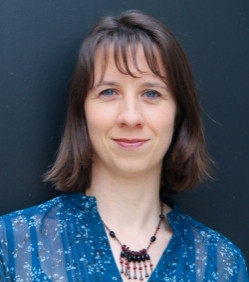Audrey Lenoël
Audrey Lenoël tells us about her INED post-doc contract

Like most research institutes, INED has junior researchers working on contract, called post-docs. Audrey Lenoël, who holds a PhD in social policy, explains how she came to be recruited at INED, how her contract works, and the specificities of being a post-doc at the Institute.
(interview conducted in May 2016)
How are researchers recruited on a post-doctoral contract and how long does the contract run?
I was recruited on a post-doctoral contract at INED to work on the TEMPER project (Temporary vs Permanent Migration). One of the project’s research areas requires setting up and conducting a survey on return migration to Senegal, and a post-doc position announcement was published to find someone who could set up the survey and monitor it in the field. I applied for the position—this was in late 2014, shortly after I defended my thesis at the University of Bristol. My application passed the first stage, and after submitting examples of my research work, an account in French and English on the project topic, and having an interview with the researcher-recruiter, I was chosen for the position. My contract went into effect February 2015 and was initially scheduled to run one year but it has been extended for two additional years.
What is the specificity of post-doctoral contracts?
Post-docs have the same rights and privileges as all researchers on contract at INED, as presented in the Institute charter on this type of temporary position. We are asked to participate actively in scientific life at INED, especially in the research units we have been recruited to work in, where we have opportunities to present our research. We can also take INED training courses. The specificity of the post-doc contract is that in addition to activities related to the project we were recruited to work on, post-doc researchers can spend 20% of their time on personal projects (thesis publication and other “valorization,” other publications, applying for positions, etc.). I will also be receiving funding to participate in a conference where I can present my own research work.
What subject are you working on at INED?
I’m working to set up and implement a field survey on return migration to Senegal. The same survey will be conducted in Argentina, Ukraine and Romania, which will make comparative analysis possible. I’m also working to further publicize and “valorize” my thesis on Moroccan women who “stayed home” when the men in their household migrated. I used a variety of methods (survey data analysis and personal narratives) to probe the hypothesis that in a country whose emigrants are mostly men, the women who remain behind and continue to live in emigrants’ households acquire a degree of autonomy. I was specifically interested in household decision-making and these women’s participation in the labour market.
